ICNARC report on COVID-19 in critical care
<p>This report presents analyses of data on patients critically ill with confirmed COVID-19 reported to ICNARC up to 4pm on 16 April 2020 from critical care units participating in the Case Mix Programme
<p>This report presents analyses of data on patients critically ill with confirmed COVID-19 reported to ICNARC up to 4pm on 16 April 2020 from critical care units participating in the Case Mix Programme
This paper looks at adaptation from the point of view of households. It asks how political and economic institutions may affect – help or hinder – these adaptation decisions. Climate change represents
Efforts to address illegal logging and reduce the trade in illegal timber have borne fruit and prompted some positive reforms in producer countries. However, changes in the sector mean overall trade has
Official estimates suggest that over 3,000 deaths each year in London are attributable to air pollution, namely because of man-made toxic airborne particles. London’s pollution levels are also illegal.
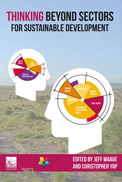
The book provides a concise introduction to the debates in a number of vital development sectors in view of the move from the era of the Millennium Development Goals (MDGs) to the Sustainable Development
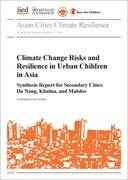
Climate change is a key challenge for Asian cities in the global south. Already half of Asia-Pacific’s urban population live in secondary cities of less than 1 million, and as urbanisation continues more
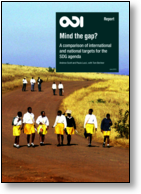
The Sustainable Development Goals (SDGs) will set the global development agenda for the next 15 years, with SDG targets acting as a benchmark of progress for rich and poor countries alike. Although SDG
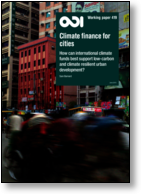
This paper reviews the approaches taken by multilateral climate funds in the period 2010-2014 to support low-emission and climate resilient development in developing country cities. It identifies US$ 842
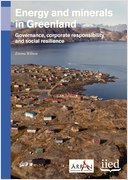
Greenland seeks to expand its energy and minerals industries to secure the revenues to gain full independence from Denmark. The 2014 oil price crash hit oil exploration hard, bringing disappointment to
The issue of energy access for the poor is gaining momentum globally. This collection of papers by early-career researchers draws on in-depth field research in Latin America, Asia and Africa to explore
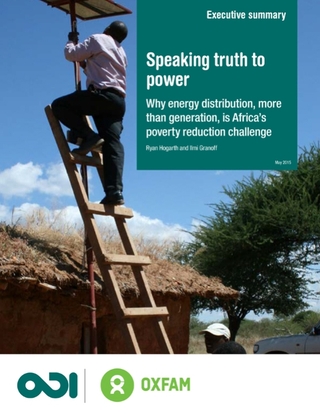
Energy is important to reduce poverty, but increasing electricity generation alone will not solve the problem. In this paper, ODI uncovers that most investment in electricity generation in Africa is not